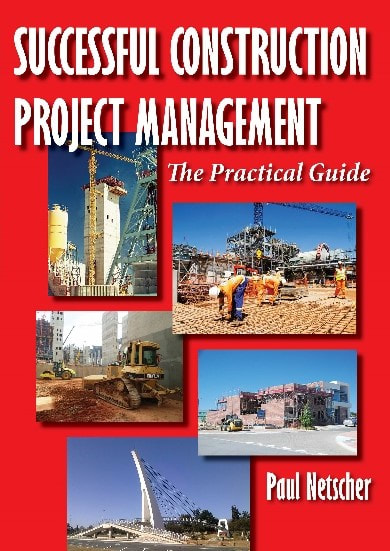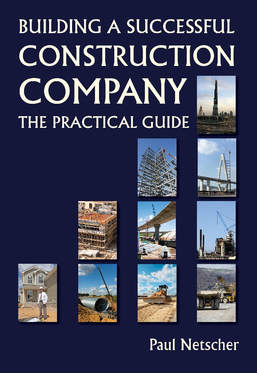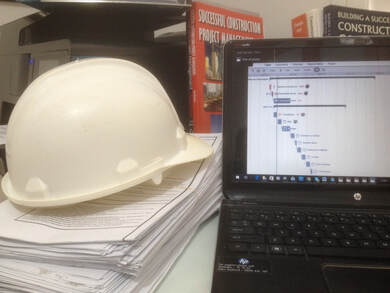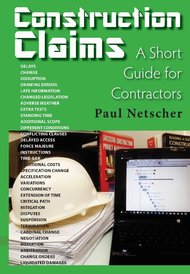 Image courtesy of stockimages at FreeDigitalPhotos.net Image courtesy of stockimages at FreeDigitalPhotos.net I often see arguments on LinkedIn and other blog forums as to whether the best construction project managers should have a tertiary qualification or whether they should have worked themselves through the ranks in the industry. Now personally I believe that a relevant tertiary education adds immense value, but I also know that experience is essential. Having said this though, it’s vital that it is the right experience, gained with suitable mentors that teach people the correct way of doing things, get the basics right and inculcate good habits. Unfortunately sometimes young construction project managers are taught the wrong way of doing things which they then carry into their career as managers. Sometimes these bad habits are then even passed onto the next generation again. Now this is probably a topic on its own which can consume much debate. However, because a construction project manager has learned, both through tertiary education as well as by experience, the basics of construction management, as well as the principles of construction, does this make them a good construction project manager? I would argue that there are certain qualities that successful construction project managers require. The question is can these qualities be learned or acquired? Maybe they are learned in our early education? Perhaps these are qualities we inherit? 10 Qualities of successful construction managers What turns an ordinary construction project manager into a great construction manager? I believe the following qualities are important:
Even construction project managers that have the right training and experience can be poor project managers if they don’t have the above qualities. What do you think makes a great construction project manager? What other qualities do you think a good construction project manager should have? Can these qualities be learned? This article is adapted from information in the author’s popular books: 'Successful Construction Project Management: The Practical Guide' and 'Building a Successful Construction Company: The Practical Guide' and 'Construction Project Management: Tips and Insights'
'Construction Claims: A Short Guide for Contractors' is another of Paul's useful books. Paul has recently published 'Construction Management: From Project Concept to completion'. These books are available on Amazon and other online book stores. Paul publishes articles regularly on LinkedIn and his website. Paul writes regular articles for other websites, gives lectures, mentors, and is available for podcasts and interviews. © 2018 This article is not to be reproduced for commercial purposes without written permission from the author.
2 Comments
How safe is your construction project? Have you had a worker die on your project? Have you visited a seriously injured worker in the hospital? Maybe you’ve been injured yourself working in construction? What does it feel like? How has it impacted your life? How has it impacted your project? How safe is your project? Is all of the safety documentation in place? Have all personnel the correct skills and knowledge? Is everyone safety conscious, or is everyone simply following the rules blindly? The impacts of poor safety Some of us have had the misfortune of having serious accidents on our construction projects. It’s not pretty – and I’m not talking about the blood and mess. It’s the after effects, the disruption, the scars, and loss left behind. I was a project director of a construction project in central Africa. While visiting the project, a scaffold that concreters were working on collapsed, resulting in a worker falling onto the broken timbers. A piece of wood penetrated the upper part of his inner thigh, which bled profusely. Fortunately, the client had a full-time paramedic on the project that provided first aid to the injured worker, before transferring him to the hospital an hour away. There was lots of blood and I was concerned the worker would die. Because we were working in a foreign country, I was also worried about what could happen to us. I had visions of the local police arriving and throwing us into prison. It was a scary thought. Luckily, there was a happy ending. The injury wasn’t as severe as it appeared, and the worker returned to work the next day. We were fortunate since I’m sure if the piece of wood had pierced a major artery, which was only centimetres away, the outcome would have been very different. This accident could have happened in any country, and if the worker had died there was the possibility of the project manager and I both being jailed if found responsible for the death. In America, prisons may be slightly better than elsewhere, and the justice system may allow for a fair trial, however, the consequences of being found responsible for the death of a worker, or member of the public, is still possibly prison time and certainly a heavy monetary fine. Unfortunately, very few project managers and construction company owners understand this, and it’s probably the reason many don’t take safety as seriously as they should. But let’s put aside the direct consequences to you for a minute, and consider some of the other consequences of an accident on a project. What about the workers themselves? What about their families? Workers have an expectation, and a right, to return home from your project in the same health as they started. Families expect to see their loved ones, and bread-winners, return from work at the end of the day, and you have the duty of care to ensure this happens. I always hear the excuse that safety costs money, that it’s a waste of time and that it slows construction work. Well if you really want to know about additional costs, time wasting and delays to your project, then let there be a serious accident. So, let’s look at the costs of poor safety.
What’s the problem? Over the years I’ve seen huge improvements in safety on projects. I look back now and wonder at the risks we took with our own lives, and the lives of workers. Safety has changed for the better, which means we can all sleep easier at night. ...Continue Reading....  This article was first published on the ClockShark website. To visit this website and continue reading the article click on the link above. Please share this post To read more about the author’s books and find out where you can purchase them visit the pages on this website by clicking the links below: 'Successful Construction Project Management: The Practical Guide' 'Building a Successful Construction Company: The Practical Guide' 'Construction Claims: A Short Guide for Contractors' 'Construction Project Management: Tips and Insights' 'Construction Management: From Project Concept to Completion' 'Construction Book reviews' To read more about the author visit the page 'Paul Netscher' Want to contact Paul Netscher please enter your details on 'Contacts' Find out how Paul Netscher can help you We make decisions every day about where and what to buy. Where will we buy our groceries, which stores do we visit for new furniture, what computer and phone should we get, what internet search engines we use, what styles of clothing we wear and where we purchase them from, what beer we drink, what brands of construction equipment we use. Many of these decisions are influenced by price, but even so, our starting point is to go with the brands we trust. So it is with customers and clients in the construction industry. Sure, they all want the cheapest price, but their starting point is to approach contractors who they have worked with before, or contractors recommended by friends or colleagues. Invariably clients or customers will avoid using contractors that have been in the media for the wrong reasons – their projects were finished late, there were quality problems or their projects ended in protracted legal disputes. A company’s brand is very important. In fact, Forbes values the worth of Apple’s brand as $170 billion, Google at $102 billion, Microsoft at $87 billion, Coca-Cola at $54 billion, Toyota at $41 billion and McDonald’s at $40 billion. What this means is that even if you had Coca Cola’s secret recipe and could sell the exact same drink for half the price you would battle to compete against Coca-Cola because the majority of people would choose to drink Coca-Cola rather than the replica you are selling for half the price. Why? Well simply because most people go with the company they believe they can trust, and with the drink, they are used to consuming. In construction it is often much the same – who will we call to price the project? It will usually be the well-known contractors and the ones we have successfully worked with before. What influences a contractor’s brand? A contractor’s brand is influenced by:
 This article was first published on the ClockShark website. To visit this website and continue reading the article click on the link above. Please share this post To read more about the author’s books and find out where you can purchase them visit the pages on this website by clicking the links below: 'Successful Construction Project Management: The Practical Guide' 'Building a Successful Construction Company: The Practical Guide' 'Construction Claims: A Short Guide for Contractors' 'Construction Project Management: Tips and Insights' 'Construction Management: From Project Concept to Completion' 'Construction Book reviews' To read more about the author visit the page 'Paul Netscher' Want to contact Paul Netscher please enter your details on 'Contacts' Find out how Paul Netscher can help you  A project construction schedule should be drawn up for every project, and used to establish the quickest, most effective method for constructing the project. The schedule can take the form of a simple hand-drawn bar chart, or be an intricate, detailed schedule, using a proprietary software package, linking and resourcing the activities. The schedule can be prepared by the project manager, or it may be delegated to a member of the team, who could be an experienced planner. It’s important, however, that the project manager controls the process, and ensures that the schedule not only meets the contract milestones but is also achievable with the available resources, that it reflects the chosen construction methods, it satisfies the client’s requirements, and that the project can be constructed in the safest and most economical manner without sacrificing quality standards. The Good
The Bad The one thing that’s worse than not having a construction schedule is having a schedule that is incorrect. Yet, many construction schedules aren’t correct. Here are a few common mistakes.
 This article was first published on the ClockShark website. To visit this website and continue reading the article click on the link above. Please share this post To read more about the author’s books and find out where you can purchase them visit the pages on this website by clicking the links below: 'Successful Construction Project Management: The Practical Guide' 'Building a Successful Construction Company: The Practical Guide' 'Construction Claims: A Short Guide for Contractors' 'Construction Project Management: Tips and Insights' 'Construction Management: From Project Concept to Completion' 'Construction Book reviews' To read more about the author visit the page 'Paul Netscher' Want to contact Paul Netscher please enter your details on 'Contacts' Find out how Paul Netscher can help you |
Archives
June 2024
Note: We welcome genuine comments, especially comments that add additional information to the subject matter in the article. We however reserve the right to remove inappropriate comments, which includes comments that have nothing to do with the subject, comments that include inappropriate language, and comments that are an advertisement for a product or company, or which include an advertising link. Comments must be in English. We will not enter into discussion on why a particular comment was removed.
CategoriesCopyright 2016 - The attached articles cannot be reproduced for commercial purposes without the consent of the author.
The opinions expressed in the attached articles are those of the writer. It should be noted that projects are varied and different laws and restrictions apply which depend on the location of the contractor and the project. It's important that the reader uses the supplied information taking cognisance of their particular circumstances. The writer assumes no responsibility or liability for any loss of any kind arising from the reader using the information or advice contained herein. "I have what I consider some of the best books on construction management."
Books are available from: Amazon.com Amazon.co.uk takealot.com kalahari.com Amazon.in Amazon.de Amazon.fr Amazon.it Amazon.com.au Powell's Fishpond uread bokus Amazon.ca Amazon.es Other retail stores Available in paperback or on Kindle "28 YEARS OF CONSTRUCTION PROJECT MANAGEMENT EXPERIENCE, DEVELOPING SUCCESSFUL CONSTRUCTION PROJECT MANAGERS AND BUILDING SUCCESSFUL CONSTRUCTION COMPANIES"
|



 RSS Feed
RSS Feed




